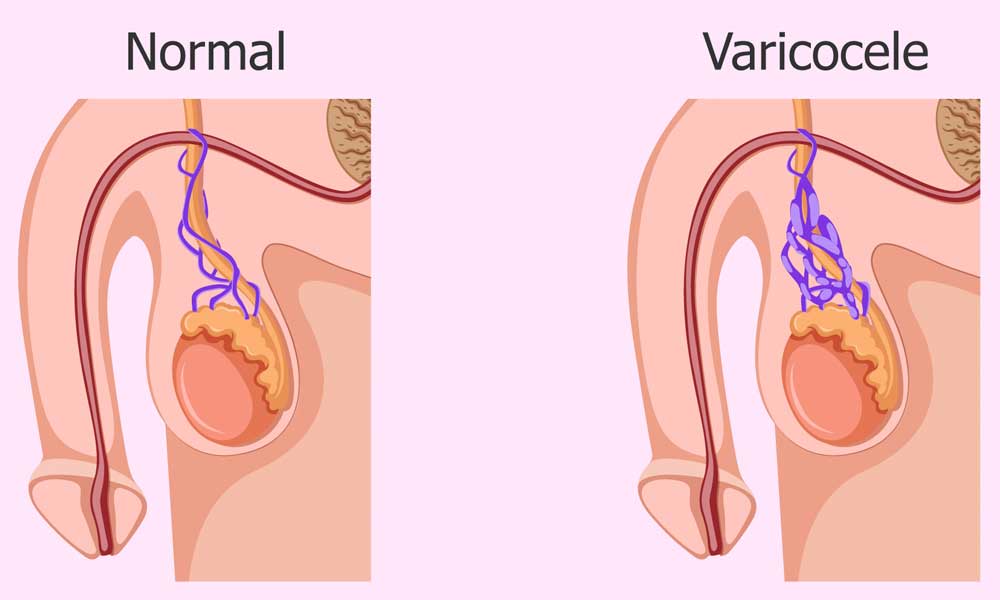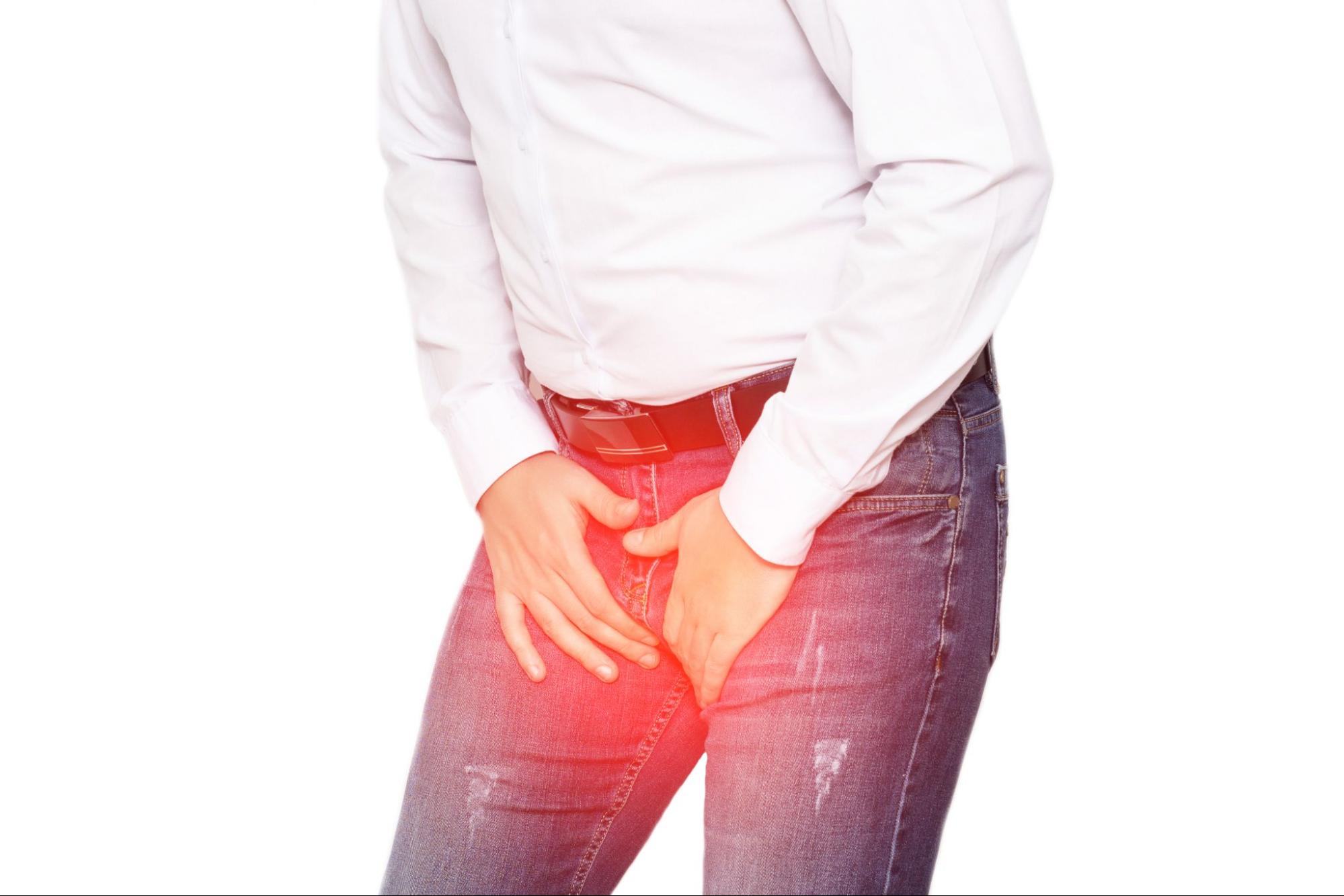General Surgeries / Varicocele
How to Treat Varicoceles Without Surgery?

by admin
13th September 2023
7 minutes read
Varicoceles is a common condition where veins in the scrotum become enlarged and twisted, similar to varicose veins that you might see in the legs. While varicocele surgery has historically been the most prescribed solution, there’s growing interest in varicocele treatment without surgery. With advances in medical science, more men are exploring non-surgical alternatives to address this issue. If you’re seeking varicocele treatment, read on to understand your options beyond the traditional testicular varicocele surgery.
Why Opt for No Surgery?
Before delving into non-surgical treatments, let’s understand why one might opt for no surgery. Surgical procedures, including vein surgery, inherently carry risks such as infections, bleeding, or complications. Furthermore, like all surgeries, the varicocele surgery procedure entails recovery time. This can mean days or even weeks off work and abstaining from certain physical activities. Therefore, many patients prefer varicocele treatment without surgery, allowing them to resume normal activities more swiftly.
Non-Surgical Varicocele Treatment Options
1. Embolization:
This is perhaps the most well-known non-surgical treatment. The varicocele embolization procedure involves a radiologist inserting a catheter into a vein in your groin or neck. Using coils or chemicals, the problematic vein is blocked, rerouting blood flow to healthier vessels. This procedure is relatively quick, and most patients can return to their regular activities within 24 hours.
2. Medication:
Some varicocele patients may find relief from pain and discomfort using painkillers like acetaminophen or ibuprofen. However, medications don’t treat the varicocele itself; they only provide symptomatic relief.
3. Lifestyle Changes:
Adopting certain lifestyle changes can help manage the symptoms of a varicocele without undergoing testicular vein surgery. This includes wearing supportive underwear to reduce scrotal sagging and alleviate pain, avoiding activities that strain the groin area, and maintaining a healthy weight.
4. Natural Therapies:
Some men have reported benefits from acupuncture, herbal remedies, and dietary changes. However, it’s essential to consult with a healthcare provider before embarking on these therapies to ensure they are safe and appropriate for your situation.
5. Monitoring:
Not all varicoceles require immediate treatment. If the varicocele is not causing pain, infertility, or other complications, a varicocele urologist might suggest monitoring the condition with regular check-ups. This ensures that any progression is caught early, and intervention can be made if necessary.
When to Consider Surgery?
While non-surgical treatments offer several benefits, there are situations where testicular varicocele surgery might be the best option:
- Painful Testicular Varicocele: Persistent and intense pain might not always be alleviated with non-surgical treatments. In such cases, surgery provides a more permanent solution.
- Infertility Issues: If a varicocele is believed to be causing infertility, particularly if there’s a decrease in sperm quality or testicular atrophy, surgical intervention might be recommended.
- Aesthetic Concerns: Some men might opt for varicocele vein surgery purely for aesthetic reasons, as the enlarged veins can be prominent and cause discomfort in appearance.
The most common varicocele surgery procedure is varicocelectomy. Here, a surgeon will make a small incision in the abdomen or groin and ligate (tie off) the problematic veins. Another method is the laparoscopic approach, which involves a few small incisions and the use of a tiny camera to guide the surgery veins procedure.
The Role of the Varicocele Urologist
A varicocele is an enlargement of the veins within the scrotum, similar to a varicose vein you might see in a leg. Varicoceles are a common cause of low sperm production and decreased sperm quality, which can lead to infertility. Not all varicoceles affect sperm production, and many men with varicoceles are able to father children without any issues. However, for those that do experience complications or discomfort, intervention may be required.
The urologist specializing in the treatment of varicoceles and their implications is crucial in the following roles:
1. Diagnosis:
A urologist will typically perform a physical examination to diagnose a varicocele. They may also use imaging tests like a scrotal ultrasound to confirm the diagnosis and determine the size and severity of the varicocele.
2. Counseling:
The urologist educates the patient about the potential implications of a varicocele, especially as it pertains to fertility and any associated pain or discomfort. They can provide guidance on whether treatment is needed based on symptoms, size of the varicocele, and any associated infertility issues.

3. Treatment:
The primary treatment for symptomatic varicoceles is surgery. There are several surgical methods, but all involve sealing off the affected vein to redirect the blood flow into normal veins:
a.Varicocelectomy:
A small incision is made in the abdomen or groin and the problematic veins are ligated or blocked off.
b.Percutaneous embolization:
A less invasive procedure where a radiologist inserts a tube into the body and introduces coils or chemicals to block the problematic veins.
4. Follow-up care:
Post-surgery, the urologist monitors the patient for any complications, recovery, and evaluates the success of the treatment, especially in cases where infertility was a concern.
5. Infertility evaluation:
If infertility is an issue, the urologist can evaluate the impact of the varicocele on sperm quality, quantity, and other factors. They work closely with fertility specialists to optimize the chances of conception.
6. Managing other complications:
While rare, varicoceles can cause other complications such as testicular atrophy. A urologist will assess, manage, and treat such complications.
Conclusion
Varicocele treatment has evolved significantly over the years. No longer limited to just the traditional testicular varicocele surgery, today’s patients can choose from a range of options that suit their unique circumstances. Whether you opt for the embolization procedure, lifestyle changes, or any other treatment, the primary goal is to ensure your comfort, well-being, and health. Always discuss potential treatments with a healthcare provider and remember that every patient’s journey with varicoceles is unique.
How Can Medfin Help?
Medfin is a daycare surgery expert providing access to the latest surgical procedures and top doctors in your city at affordable prices. Medfin provides you access to top doctors and surgeons with 10+ years of experience . With Medfin, you can leave your hassles behind and focus on your health. From instant consultations to paperwork assistance, we have got you covered with everything. So why wait? Call us today!
FAQ’s
Gentle exercises can help improve blood flow in the region, but it’s important to avoid heavy lifting or straining which can exacerbate symptoms. Pelvic floor exercises might also be beneficial.
Over-the-counter pain relievers, like ibuprofen, can help alleviate pain and inflammation associated with varicoceles. However, they should be taken as per recommendations and not considered a long-term solution.
Some men report relief from varicocele symptoms after undergoing acupuncture, but scientific evidence on its efficacy is limited. Always consult a healthcare professional before trying any alternative therapy.
Regular check-ups, at intervals recommended by your urologist, are crucial to monitor the size and symptoms of the varicocele, especially if you’re considering having children in the future.
While there’s no definitive dietary cure, some studies suggest that antioxidants like vitamin C, vitamin E, and selenium might improve sperm health in varicocele patients. Always consult a doctor before starting any new supplement regimen.
CATEGORIES
- ACL Reconstruction
- Anal Fissures
- Anal Fistula
- Appendicitis
- ASK A DOCTOR
- Benign Prostatic Hyperplasia
- Breast Lump Excision
- Cataract
- Circumcision
- Conditions & Diseases
- Cosmetology
- Covid-19
- Cure
- Endocrinology
- ENGLISH VIDEOS
- Eye Care
- Gallstones
- General Surgeries
- Government Schemes
- Gynaecology
- Gynecomastia
- Gynecomastia
- Health
- Health Insurance
- Hernia
- hindi
- Hip Arthoscopy
- Hip Replacement
- Hip Replacement Surgery
- Hydrocele
- Kannada
- Kidney Stones
- Knee Arthroscopic
- Laparoscopic
- LASER
- Latest Treatments
- Lifestyle
- Liposuction
- Medfin Stories
- Medicine
- Nephrology
- Ophthalmology
- Orthopaedic
- Paraphimosis
- Patient Testimonials
- PCL Reconstruction
- Phimosis
- Piles (Hemorrhoids)
- Pilonidal Sinus
- Proctology
- Prostate Artery Embolization
- Rhinoplasty
- Second Opinion
- Total Knee Replacement
- Uncategorised
- Urology
- uterine artery embolization
- Uterine Fibroids
- Varicocele
- Varicose Veins
- Vascular
- VIDEOS






